Projects : Archaeology, Anthropology, & Living Cultures
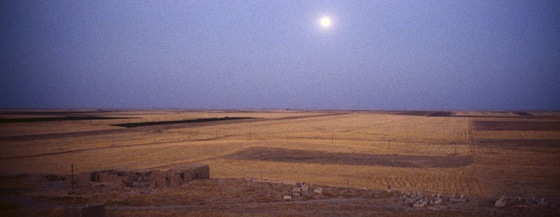
A Changing World
A wide variety of forces, including globalization, diminished food and water resources, migration, and the inevitable pressures of human habitation, threaten archaeological sites and the historical and anthropological evidence for the evolution of humans, societies civilizations, cultures, and languages.
At the same time as the world's ever expanding population demands increasing amounts of the planet's limited resources, economic and political forces also threaten the individual identities of many social and indigenous groups, challenging the continued existence of unique systems of cultural, ethnic, and linguistic diversity.
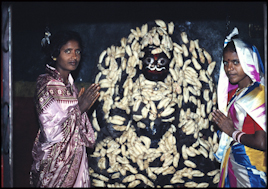
To put it another way, just as the effects of modernization and globalization pose threats to the planet's biosphere, they also threaten the ‘ethnosphere', the diverse web of cultural qualities and distinctions that provide our species with variety in terms of intellectual, communicative, and other social qualities. There is reason to be concerned about cultures both past and present; this is why we engage in archaeological and anthropological research and continually advocate the rights of indigenous cultures, marginalized groups, and endangered languages.
Archaeology and Anthropology: Investigating and safeguarding historical remains
The looting of archaeological sites is the most widely recognized threat to our ability to understand how early civilizations evolved; but the unavoidable effects of sustaining an expanding human population present an even greater menace. Construction projects and the insatiable need to exploit natural resources such as minerals, gas, forests, and water destroy countless archeological sites each year.
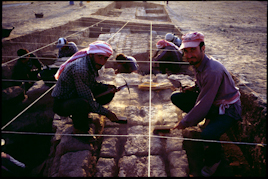
As the resources of our globe of its ecosystems are increasingly placed under stress by the necessity of human survival, archaeological and other cultural heritage sites also compete with the needs of our species for continued existence. The erection of hydroelectric dams in Egypt, Turkey, Syria, and Iraq, for example, have submerged and permanently destroyed thousands of early archeological sites dating as far back as 5000 BCE. The inevitable pressures of an exploding growth in population, which include the building of roads, factories, and housing, destroy many others.
As one scholar has put it, "The question is not if the battle to preserve archaeological sites and landscapes will be lost but how fast and how badly." We believe that a limited amount of time remains to recover, record, and to preserve the histories of both past and present cultures and wish to encourage a world in which culture, heritage, and human social diversity are core components of globalization and of economic and social development—rather than outposts relegated to its borders.
Our Project at Tell Arbid, Syria
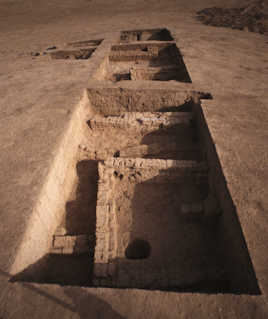
The Joint Expedition for the Oriental Institute of the University of Vienna and Archaeos at Tell Arbid, Syria was intended both as an historical investigation of this potentially important site in Northern Mesopotamia and as an archaeological field school for graduate students from the University of Vienna.
The excavation was fortunate enough to unearth and document the remains of a mid third-millenium BCE housing settlement, consisting of mud-brick buildings, passageways, courtyards, and associated small finds as well as later intrusive Hellenistic graves. A separate deep sounding, within the area of the ancient city proved to be largely "sterile" and free of cultural deposits.
Archaeos' preliminary report of this excavation is available here. You may also wish to visit the preliminary site report at the Oriental Institute of the University of Vienna.
Anthropology, Indigenous Cultures, Marginalized Groups, & Endangered Languages
The societal tensions that we face today are not only economic, nor are they simply about food, water, land and other resources. They are also the product of cultures and traditions that are struggling to survive and be hearcd in a world of television, radio, and the internet and that refuse to be passively subsumed by what the consumer markets export as ‘cultural' goods and ideas.
Globalization and enlightened development require a deep form of social engagement that acknowledges our responsibility to improve the quality of life among all of the individuals, communities, and societies that share the world in which we live. The battle to preserve cultural diversity has become part of a large struggle to create and to sustain distinct identities, a fight by groups and individuals for self-worth and self-esteem. Cultural diversity, tolerance, and respect are all pathways towards a peaceful form of coexistence.
On 26 January 2010, Boa Sr., an 55 year old man, died and with him the Aka-Bo language of the North Reef Island and west central coast of North Andaman in India passed into extinction. Of the approximately 6,000 to 7,000 languages spoken globally today it is estimated that one disappears completely about every two weeks, never to be heard again, part of an extraordinary series of blows to cultural diversity.
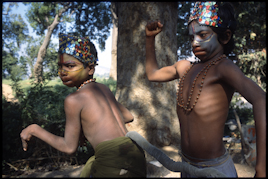
By 2100, it is predicted that 90% of the world's languages will have ceased to exist. Many of them will disappear because the social groups that speak them will become subsumed by the dominant languages of globalization and of modern commerce, such as English, Spanish, and Chinese. It is not the languages themselves that matter the most, but the systems of knowledge, understanding and identity that accompany them.
As a species our singular strength lies in our ability to create communities and an awareness of the processes that create culture and our appreciation for cultural diversity and uniqueness, aspects that enrich the human experience and serve a seminal role in any wisely imagined future.
The rights of indigenous cultures and the plight of endangered languages are topics that should concern us all.
